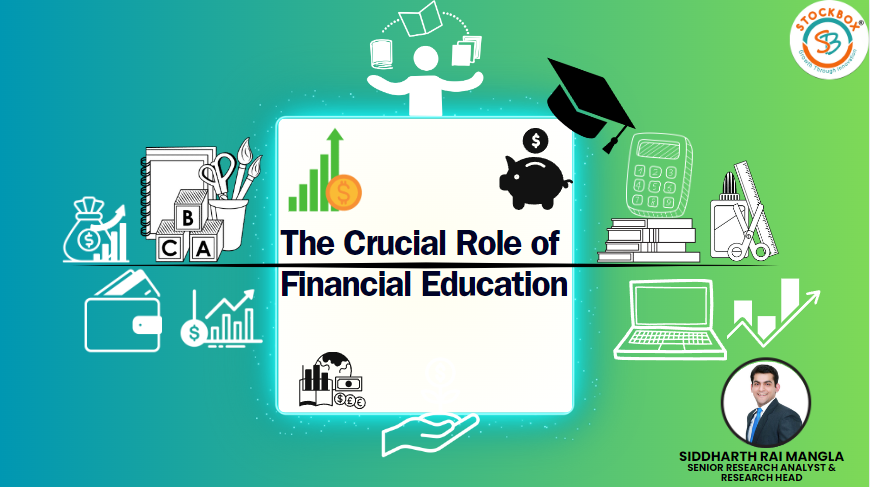In a world driven by economic forces and financial complexities, the significance of financial education cannot be overstated. Financial literacy empowers individuals to make informed decisions regarding their money, investments, and future financial well-being. Yet, despite its importance, many people lack even basic financial knowledge, leading to detrimental consequences such as debt accumulation, inadequate savings, and poor investment choices. In this blog, we will discuss the role of financial education in empowering individuals to make informed decisions and achieve long-term financial stability.
Comprehensive Understanding for Economic Stability
Financial education is not merely about understanding numbers and equations; it encompasses a comprehensive understanding of financial concepts, ranging from budgeting and saving to investing and retirement planning. By equipping individuals with the necessary knowledge and skills, financial education serves as a tool for promoting economic stability and prosperity at both individual and societal levels.
Fostering Responsible Financial Behavior
One of the primary benefits of financial education is its ability to foster responsible financial behavior. When individuals comprehend fundamental financial principles, they are more likely to manage their money wisely, avoid excessive debt, and establish sound financial habits. Moreover, financial literacy enables individuals to navigate complex financial products and services, empowering them to make informed decisions tailored to their specific needs and goals.
Promoting Long-Term Financial Security
Furthermore, financial education plays a crucial role in promoting long-term financial security. By learning about concepts such as compound interest, asset allocation, and risk management, individuals can effectively plan for their future and work towards achieving their financial objectives. Whether it’s saving for retirement, purchasing a home, or funding higher education, a solid understanding of financial concepts is essential for realizing these goals.
Building Resilience in Uncertain Times
Moreover, financial education helps individuals build resilience in the face of economic uncertainties. In today’s volatile economic landscape, unforeseen events such as job loss, medical emergencies, or market downturns can have a significant impact on one’s financial well-being. However, Individuals with financial literacy are more prepared to navigate such challenges, given their capacity to establish emergency funds, formulate contingency plans, and adjust their financial tactics accordingly.
Promoting Economic Inclusivity
Additionally, financial education promotes economic inclusivity by bridging the gap between different socioeconomic groups. Historically, marginalized communities have faced barriers to accessing financial resources and information, perpetuating cycles of poverty and inequality. By providing financial education to underserved populations, we can empower individuals to overcome these barriers, build wealth, and achieve financial independence.
Moreover, financial education extends beyond adults; imparting financial literacy to children and young adults is equally crucial. By introducing basic financial concepts at an early age, we can lay the foundation for responsible financial decision-making later in life. Schools, parents, and community organizations all play a vital role in imparting financial knowledge to the next generation, ensuring that they are equipped to navigate the complex financial landscape they will inherit.
In conclusion, the importance of financial education cannot be overstated. From promoting responsible financial behavior to fostering long-term financial security and economic inclusivity, the benefits of financial literacy are manifold. By investing in financial education, we can empower individuals to take control of their financial futures, build wealth, and ultimately achieve financial freedom. It is not just a matter of numbers; it is a pathway to unlocking economic empowerment and prosperity for individuals and communities alike.

